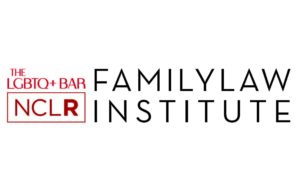Legislation & Policy
State Policy Working Group
- Relationships & Family > Marriage & Relationships
- Youth > Transgender Youth
- Youth > Education
- Discrimination > Employment
- Discrimination > Housing & Public Accommodations
- Discrimination > Sports
- Discrimination > Faith & Religion
NCLR, along with other national LGBTQ organizations, is part of a State Policy Working Group that addresses proposed state legislation affecting LGBTQ people across the country. The group works to support local advocates in advancing bills to protect LGBTQ people from discrimination in employment, housing, public accommodations, healthcare, and other areas, and to allow transgender and nonbinary people to obtain gender marker changes on identity documents.
The group also works to stop the dozens of hostile anti-LGBTQ bills introduced in state legislatures every year. Among the proposed laws that have been successfully defeated are bills that would permit discrimination against same-sex couples who marry, create broad religious exemptions to existing civil rights protections, allow religiously-affiliated child welfare agencies to refuse to place children with same-sex couples, prohibit transgender people from using restrooms and other facilities based on their gender identity, and deprive transgender youth of access to gender-affirming medical care and participation in school sports based on their gender identity.
MoreLegislation & Policy
Uniform Laws Protecting Nonmarital Relationships
Few states provide strong protections for people in nonmarital relationships — some states do not even recognize that unmarried couples even have the right to enter into cohabitation agreements. The Uniform Law Commission is currently drafting a Uniform Act, the Economic Rights for Unmarried Cohabitants, to provide a basis for states to provide some recognition for nonmarital relationships. NCLR is an Observer for the drafting committee, providing input and representing the needs of LGBTQ people in nonmarital relationships as the uniform legislation is being drafted.
MoreLegislation & Policy
LGBTQ Family Law Institute
The LGBTQ Family Law Institute is a joint venture of NCLR and the LGBTQ Bar. The Family Law Institute allows experienced LGBTQ family law practitioners to share collective wisdom and to discuss cutting-edge legal strategies for representing members of the LGBTQ community. Members of the Family Law Institute convene in person annually and collaborate regularly via an online listserve. To find out more about membership or to see a directory of Family Law Institute member attorneys, please visit the LGBTQ Bar.
MoreLegislation & Policy
Maryland Marriage Equality
Same-sex couples have been able to marry in Maryland since January 1, 2013. On March 1, 2012, Governor Martin O’Malley signed H.B. 438, a bill that allowed same-sex couples to marry. However, opponents gathered signatures to put a referendum that would have repealed the new law on the ballot. On November 6, 2012, the referendum did not pass. NCLR worked as part of a broad coalition to help pass the bill and defeat the referendum.
Even before this law went into effect, Maryland already recognized marriages between same-sex couples entered in other jurisdictions. On May 18, 2012, the Court of Appeals of Maryland (the state’s highest court), ruled in Port v. Cowan that Maryland must recognize an out-of-state marriage of a same-sex couple if the marriage was valid in the state where the couple married. Under the legal doctrine of “comity,” the court held that Maryland must recognize out-of-state marriages for purposes of divorce and for all other purposes, even if the couple could not have entered into the marriage within the state.
Information about relationship recognition in other states .
MoreLegislation & Policy
Federal Hospital Visitation Rule
The National Center for Lesbian Rights was a lead partner with the Department of Health and Human Services (HHS) on the development of the administration’s historic Hospital Visitation Rule. The Rule came at the direction of President Obama who urged HHS to identify ways to protect the hospital visitation rights of all patients through policy change. NCLR worked closely with HHS on the final rule, which guarantees equal treatment in hospital visitation to all patients and their loved ones regardless of sexual orientation, gender identity, biological relationship, or marital status. Subsequent to the introduction of that Rule in 2011, we have worked closely with HHS on implementation. We co-hosted a webinar with HHS, which provided education on the impact of the Rule and “Best Practices‚” for working with the LGBTQ community. We continue to work with HHS to clarify that this Rule also applies to nursing homes and hospice facilities.
More









